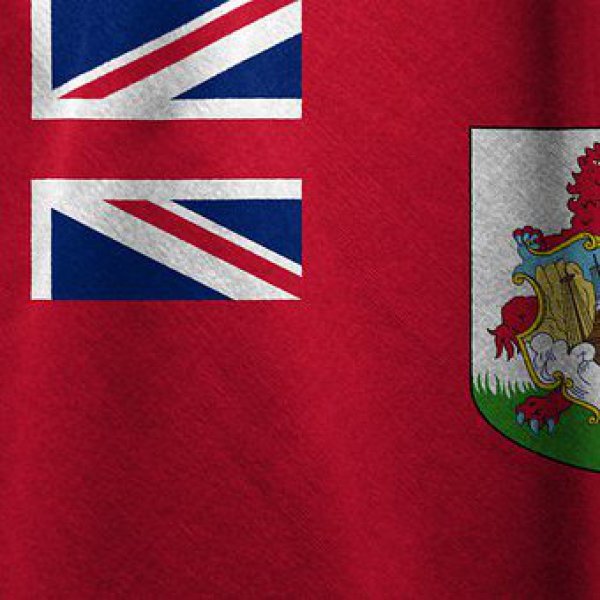

Throughout our history AMSPAR is proud to have had membership representation in the following countries. Our educational standards and professional membership are recognised by a worldwide audience of individuals and health organisations.
Our latest international member comes from the Falkland Islands.
United States of America
Health care in the United States is provided by many distinct organisations. Health care facilities are largely owned and operated by private sector businesses. 58% of community hospitals in the United States are non-profit, 21% are government-owned, and 21% are for-profit. According to the World Health Organisation (WHO).
Australia
Health care in Australia has a highly developed structure. Health care is primarily delivered in Australia by government through Medicare. Health care in Australia is funded by the government at national, state and local governmental levels, as well as by optional private health insurance .
Bermuda
Since 1970 Bermuda has had a mandated basic insurance plan called the Standard Health Benefit or SHB. It includes mostly hospital services and it’s not enough when you need other healthcare like prescriptions or office visits. This basic plan is not available for sale on its own, so it’s of limited use.
The Bermuda Health Plan wants to make sure the core plan includes benefits to keep you healthy and gives people the protection they really need.
Cyprus
In 2013 Cyprus decided to establish a national health care system. A Cyprus national health system was predicted to increase coordination, reduce waste, and be more fiscally responsible. Cyprus ranks the highest among European Union nations on out-of-pocket health spending. Public healthcare operates with the state's Ministry of Health providing control and funding. The Minister of Health, announced in September 2015 that he intended to establish a National Health Service by 2017. Establishment of an operational NHS was a promise Cyprus made as part of the bailout programme with the Troika of international lenders.
The current dual sector system is in the process of being replaced with a national health system that aims to provide universal coverage.
Germany
Germany has a universal multi-payer health care system paid for by a combination of statutory health insurance (Gesetzliche Krankenversicherung) and private health insurance (Private Krankenversicherung).
Germany has the world's oldest national social health insurance system, with origins dating back to Otto von Bismarck's social legislation, which included the Health Insurance Bill of 1883, Accident Insurance Bill of 1884, and Old Age and Disability Insurance Bill of 1889.
Ghana
In Ghana, most health care is provided by the government and is largely administered by the Ministry of Health and Ghana Health Services. The healthcare system has five levels of providers: health posts, health centres and clinics, district hospitals, regional hospitals and tertiary hospitals.
Hong Kong
Hong Kong healthcare is a dual-track system. A public system which provides over 90% of all in-patient bed-days and 30% outpatient service according to the Department of Health in Hong Kong.
Hong Kong's medical infrastructure consists of a mixed medical economy, with 12 private hospitals and 43 public hospitals. Hong Kong has high standards of medical practice
Ireland
Primary health care in Ireland is mostly provided by general practitioners (GPs), who generally operate as sole traders or in health centres with other GPs and sometimes nurses. Most GPs also offer house visits to their patients, with emergency "out-of-hours" GP services available in all parts of the country.
Health care in Ireland is delivered through public and private healthcare. The public health care system is governed by the Health Act 2004, which established a new body to be responsible for providing health and personal social services to everyone living in Ireland – the Health Service Executive. The new national health service came into being officially on 1 January 2005.
Malta
Public healthcare in Malta. The Maltese government provides comprehensive health care that is free at the point of delivery for all Maltese residents.
Malta has a long history of providing publicly funded health care. The first hospital recorded in the country was already functioning by 1372. Today, Malta has both a public healthcare system, known as the government healthcare service, where healthcare is free at the point of delivery, and a private healthcare system. Malta has a strong general practitioner-delivered primary care base and the public hospitals provide secondary and tertiary care.
New Zealand
The health care system of New Zealand has undergone significant changes throughout the past several decades. From an essentially fully public system based on the Social Security Act 1938, reforms have introduced market and health insurance elements primarily since the 1980s, creating a mixed public-private system for delivering healthcare.
Nigeria
Healthcare provision in Nigeria is a concurrent responsibility of the three tiers of government in the country. Private providers of healthcare have a visible role to play in health care delivery. The use of traditional medicine (TM) and complementary and alternative medicine (CAM) has increased significantly over the past few years.
The federal government's role is mostly limited to coordinating the affairs of the university teaching hospitals, Federal Medical Centres (tertiary healthcare) while the state government manages the various general hospitals (secondary healthcare) and the local government focus on dispensaries (primary healthcare), which are regulated by the federal government through the NPHCDA.
Qatar
Public healthcare : Having benefited from huge state investment, Qatar’s public hospitals and clinics are well equipped and employ highly proficient medical
staff.
Private healthcare : Private healthcare in Qatar is a fast growing sector and is driven by both popular demand for quicker service as well as the gradual increase in Qatar’s population.
Pharmacies and medicine : Pharmacies are common in Qatar, with many 24-hour pharmacies operating in Doha.
Healthcare standards in Qatar are generally high. Qatari citizens are covered by a national health insurance scheme.
Saudi Arabia
Health care in Saudi Arabia is a national health care system in which the government provides free health care services through a number of government agencies. There is also a growing role and increased participation from the private sector in the provision of health care services. Saudi Arabia has been ranked among the 26 best countries in providing high quality healthcare.
Spain
Healthcare in Spain consists of both private and public healthcare, with some hospitals (hospitales) and healthcare centres (centros de salud) offering both private (privado) and state healthcare services (asistencia sanitaria pública). Around 90% of Spaniards use the public healthcare system, which is called the National Health System.
United Arab Emirates
The start of modern health care in the United Arab Emirates can be traced to the days when the area was known as the Trucial States. In 1943, a small healthcare centre was opened in the Al Ras area of Dubai. In 1951, under the patronage of Sheikh Saeed bin Rashid Al Maktoum, the Ruler of Dubai, the first phase of the Al Maktoum Hospital was built and continued over succeeding years until a 157-bed hospital was completed. In 1960.
Standards of health care are considered to be generally high in the United Arab Emirates, resulting from increased government spending during strong economic years.
We are located at:
AMSPAR
Tavistock House South
Tavistock Square
London WC1H 9LN
Use the quick access buttons below;
Contact us today!
If you have any queries or wish to make an appointment, please contact us:
Phone: 020 7387 6005
X (Twitter): @AMSPARUK
E-mail: info@amspar.co.uk






















